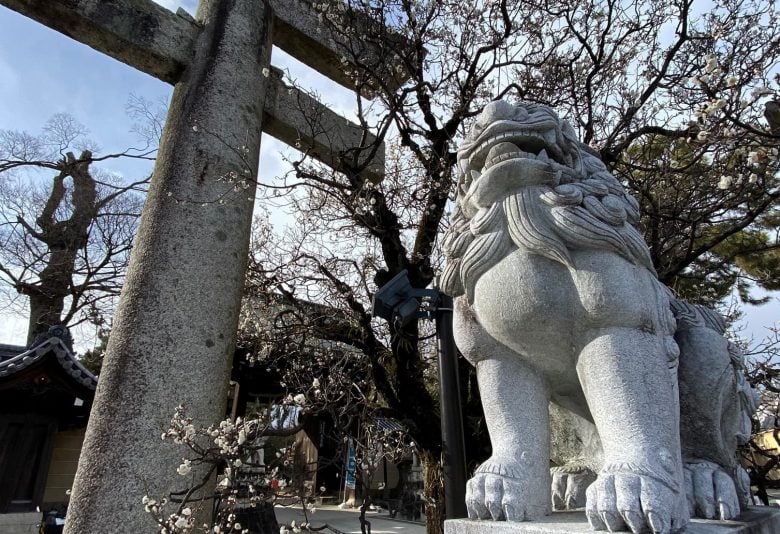
Japanese proverbs
Every culture has its beliefs, customs and of course its proverbs. If you plan to study Japanese in Japan, maybe your fellow students and teachers can share with you some of these. If coming to work or intern at a local Japanese company, your fellow workers may assume you know some of them already. And even if you are just traveling around Tokyo or Kyoto, it is nice to be able to show the locals your interest in their culture and how well educated you are about it.
So on this Sakura Tip we focus on some proverbs to continue going a little deeper into the Japanese culture while preparing for your next stay in Tokyo, Kyoto or in the beautiful costal area of Izu.
Aun no kokyu・阿吽の呼吸
Two people sharing the same mindset in harmony, as in being able to finish the other persons sentence or communicating without having to speak.
*Fun fact: shrines usually have two “komainu” (guardian lion-dogs) at the entrance, one with an open mouth and one with its mouth shut, symbolizing this “aun no kokyu” connection with the shinto gods.
Isogeba maware・急げば回れ
Rushing through a shortcut in order to finish something quickly but having a high probability of making a mistake, rather than taking the safe longer route.
Nanakorobi yaoki・七転び八起き
Fall seven times, get up eight. This is a great proverb referencing to the importance of diligence and persistance through whatever one wants to accomplish in life.
Saru mo ki kara ochiru・猿も木から落ちる
Literally: even monkeys fall from trees. Meaning that it is natural to make mistakes sometimes.
Hana yori dango・花より団子
One of the most known Japanese proverbs. It refers to caring more about the substance of things rather than just their appearance. Literally: choosing flowers over “dango” (typical rice flour dumpling Japanese sweet).
Nito wo oumono ha itto mo ezu・二兎を追う者は一兎をも得ず
Literally: he who chases after 2 rabbits will catch neither. Meaning that in doing 2 things at the same time, success will not be possible in either.
*This proverb is also known as: Abuhachi torazu (虻蜂取らず). By going after both the horsefly and the bee, one may not be able to catch neither.
Nido aru koto ha sando aru・二度あることは三度ある
That which happens twice shall happen a third time. Things tend to repeat themselves.
Fukusuibon ni kaerazu・覆水盆に返らず
That which is done can not be undone. Very similar to “it’s no use crying over spilled milk”.
Ame futte ji katamaru・雨降って地固まる
Literally, the land strengthens after the rain. Adversities strengthen the foundations. This proverb can also be translated as “what doesn’t kill you makes you stronger”.
Deru kui utareru・出る杭は打たれる
“The nail that sticks out gets hammered down”. Those who stand out eventually get put in line. This proverb is similar to “when in Rome do as the Romans”.
Did you already knew some these proverbs? Maybe some are similar or the same in your country.
Revisit our Sakura Tips for more aspects of Japanese culture in preparation for your next trip to Japan. And if you are already in search for a place to stay while studying, working or traveling alone, with friends or family, don’t forget to contact our experienced multilingual team to help you find the best accommodation for your life adventure in Japan.
SAKURA HOUSE
Nishi-Shinjuku K-1 Bldg. 2F
7-2-6 Nishi-Shinjuku, Shinjuku-Ku Tokyo, Japan
Postal code: 160-0023
Google map
- From Japan:
- 03-5330-5250
- From outside Japan:
- +81-3-5330-5250
- Mail:
- [email protected]
- Office hours:
- 8:50 am to 8:00 pm
We are open every day of the year.
- Tokyo time:
- 15:04(We are open now!)







